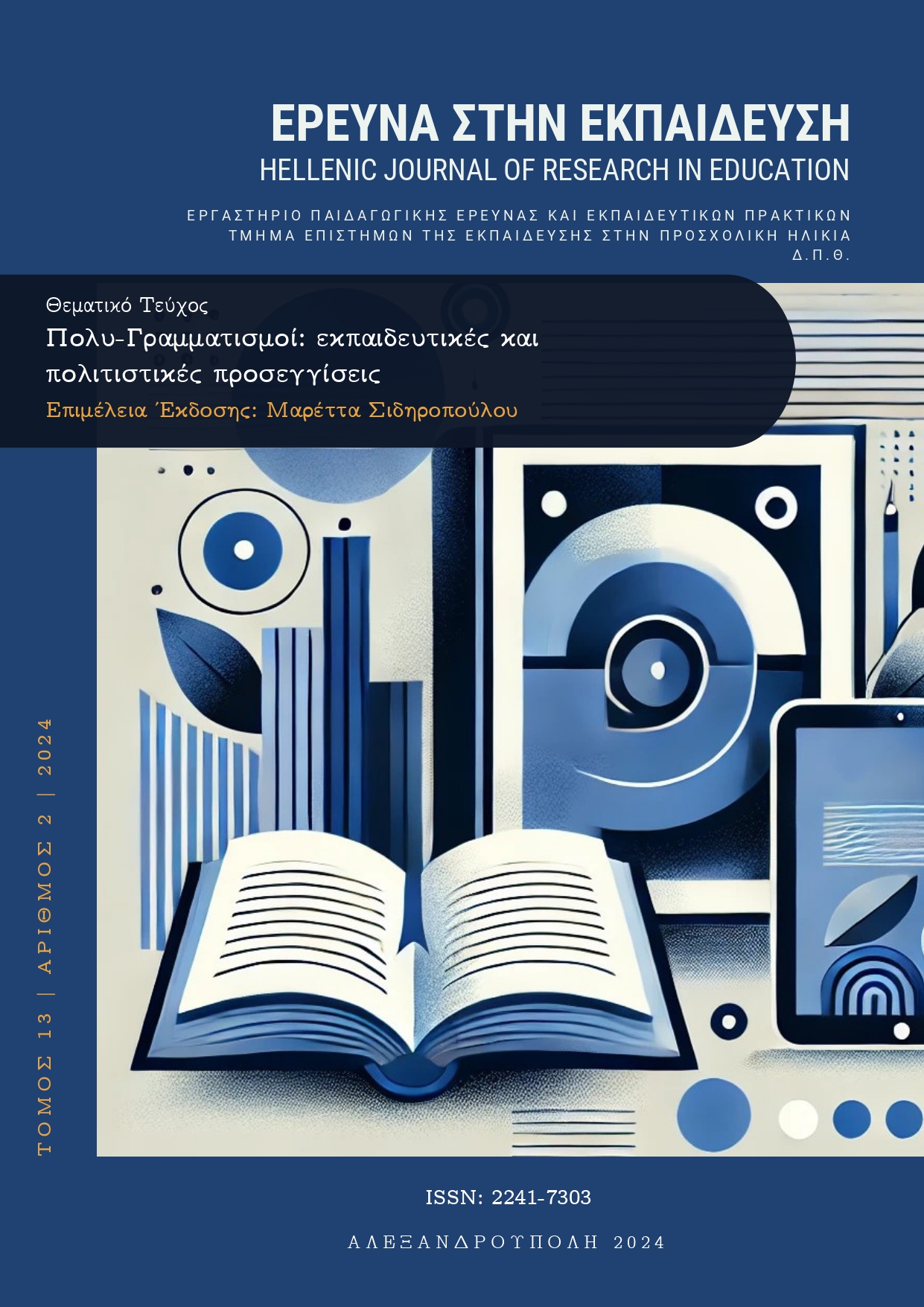Wimmelbook as a means to strengthen narrative speech and visual literacy in Preschool

Abstract
This study examines the use of the wordless Wimmelbook, as an educational tool to enhance narrative skills and visual literacy in preschool-aged children. Characterized by their rich, multi-faceted visual stories, Wimmelbooks offer numerous narrative pathways, encouraging young readers to search, observe, fill in visual ‘gaps’, and interpret or narrate what they see. The article highlights how Wimmelbooks can ignite imagination, boost creativity, and encourage critical visual skills as children are inspired to follow character paths and create their own stories based on the visual content. This interactive and active process is argued to not only enhance their narrative abilities but also aid in the development of critical visual literacy skills. For the research, a qualitative methodology was adopted to examine the potential benefits of Wimmelbooks for preschool children, connecting them with theoretical approaches drawn from the field of visual literacy and the stages of narrative competence from the broader domain of language development. The sample selected includes four Wimmelbooks by Susanne Berner on the four seasons, chosen for their availability in the Greek market. These books will be analyzed to identify elements related to the ‘mapping’ of narrative paths through visual element identification, character development, scene evolution, and the detection of intertextual hints and motifs in the visual narratives. In conclusion, the study supports that reading images, akin to reading texts, fosters linguistic expression and the production of narrative scenarios. Therefore, acquiring the ability to recognize, understand, and interpret visual stories—which is not innate—is closely linked to the linguistic and narrative skills of the preschool-aged reader.
Article Details
- How to Cite
-
Papailia, A., & Sidiropoulou, M. (2024). Wimmelbook as a means to strengthen narrative speech and visual literacy in Preschool. Hellenic Journal of Research in Education, 13(2), 135–154. https://doi.org/10.12681/hjre.37354
- Section
- Articles

This work is licensed under a Creative Commons Attribution-NonCommercial-ShareAlike 4.0 International License.
Authors who publish with this journal agree to the following terms:
- Authors retain copyright and grant the journal right of first publication with the work simultaneously licensed under a CC-BY-NC-SA that allows others to share the work with an acknowledgement of the work's authorship and initial publication in this journal.
- Authors are able to enter into separate, additional contractual arrangements for the non-exclusive distribution of the journal's published version of the work (e.g. post it to an institutional repository or publish it in a book), with an acknowledgement of its initial publication in this journal.
- Authors are permitted and encouraged to post their work online (preferably in institutional repositories or on their website) prior to and during the submission process, as it can lead to productive exchanges, as well as earlier and greater citation of published work (See The Effect of Open Access).


